Magaz or Magas or Magaj as it is called, is a very popular Gujarati fudge essentially made in the households during Diwali or in winter months. Its a mithai that in a way heralds the festive season of Diwali.
A sweet by the name Magaz always intrigued me!! It was never pronounced Magaz/Magas but Magaj and Magaj in Gujarati means brain. If someone bores or irritates us to hell, we say, “bandh kar, maru magaj na kha..” (stop it, don’t eat my brain/ stop boring me). So how come a predominantly vegetarian state names one of its most popular mithai Magaz!? was the question that popped up in my mind whenever I had Magaz before me. The mystery resolved a couple of years ago when a little research told me that traditionally the Magaz sweet always had reasonable amount of powdered Char–Magaz seeds (char means four and magaz means brain) in it. Char-Magaz is a combination of one nut and three seeds variety – almonds, pumpkin seeds, cantaloupe seeds and water melon seeds. Since these seeds are high in fatty acids they help develop and maintain parts of our brain hence the name Char – Magaz. They also work wonders on the health of our heart. Often described as poor man’s almonds and cashews, melon seeds have a wide range of culinary uses, we find them in our Mukhvas/after mint and Thandai mixture, it is widely used for thickening the consistency of gravies and curries, these days it is used extensively in cereals, energy bars and smoothies. Hence Magaz as a mithai with inclusion of powdered char magaz is a powerhouse of nutrients.
Magaz can also be termed as the Gujarati counterpart of the popular Besan ke Ladduu from Punjab, both quite similar yet distinct. Magaz has a coarse texture. The texture is a result of a process called ‘Dhabo Devo‘ where the chickpea flour is rubbed with ghee and the dry mixture is passed through a sieve. These days with the availability of coarse chickpea flour one can skip that process.
The Magaz recipe featured here uses powdered magaztari/melon seeds and has warm notes of nutmeg. In a hurry to capture pictures before the day light faded away, I forgot to powder my caster sugar and hence my Magaz shows some speckles of sugar granules, it has not altered the taste though instead has lent that extra crunch, but you may want to powder the sugar without forgetting.
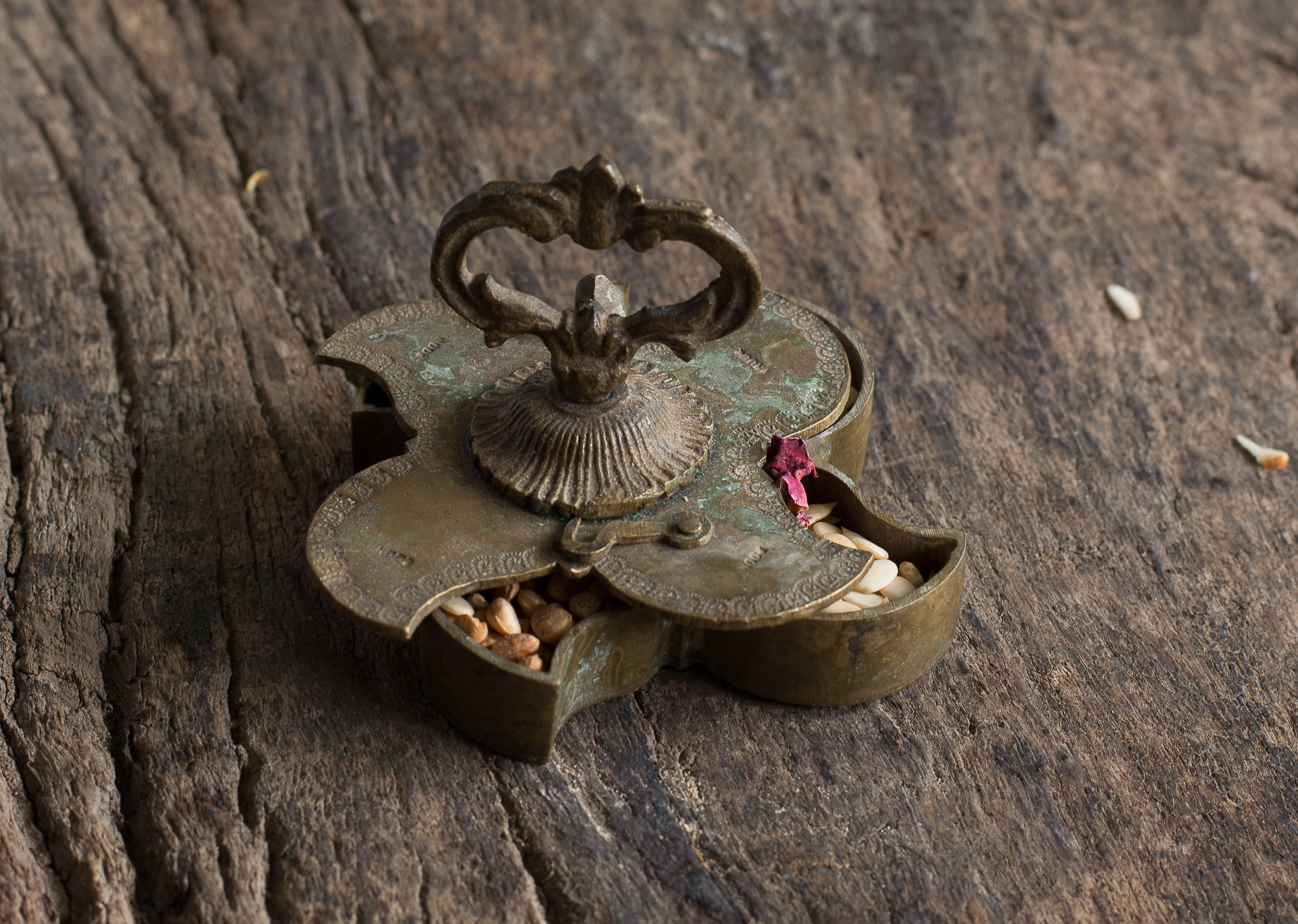
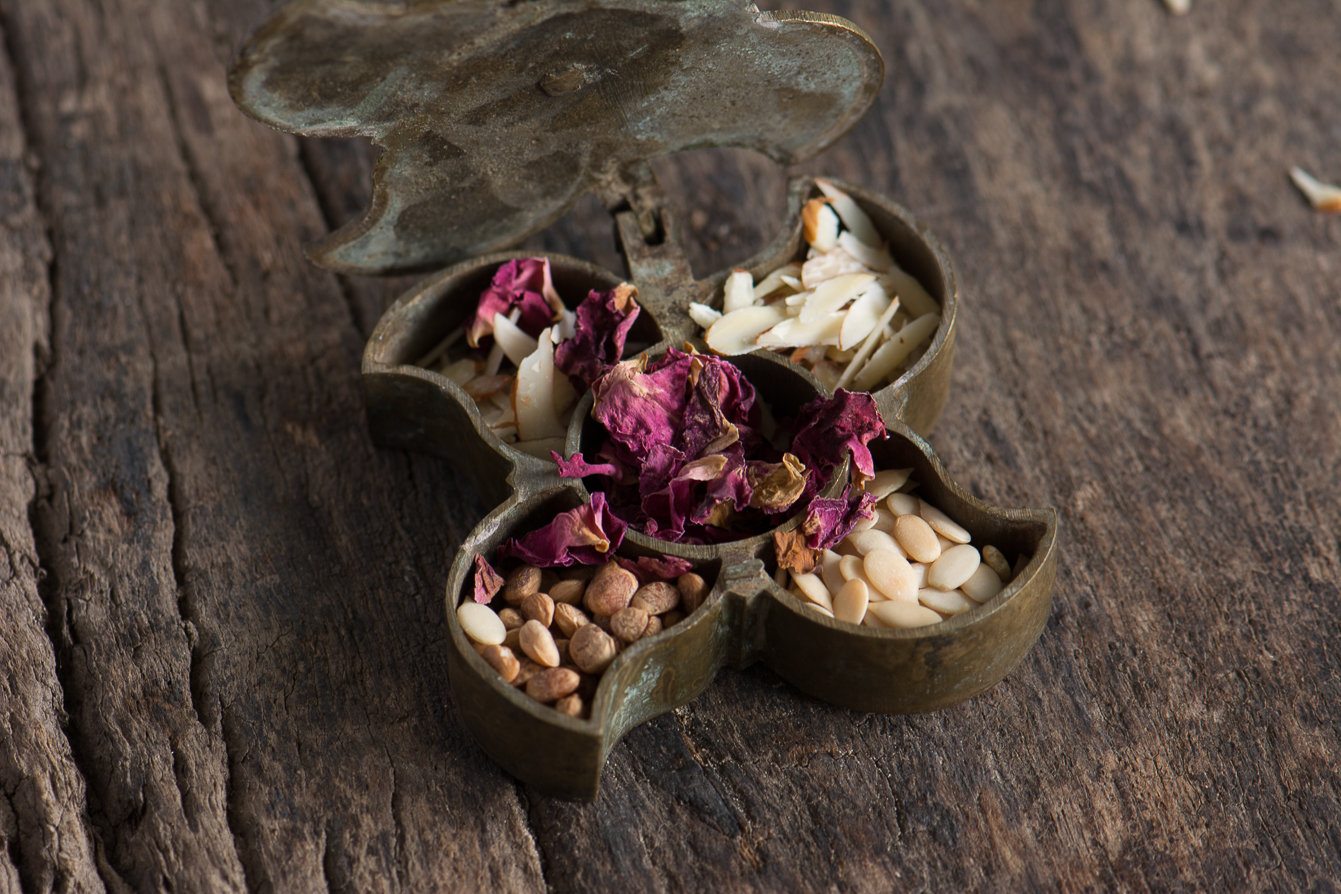
MAGAZ
Preparation time – 10-15 minutes
Cooking time – 15-20 minutes
Cooling time – 30 minutes
Ingredients
- 2 cups coarse chickpea flour
- 1/2 cup powdered magaztari/melon seeds
- 1/2 cup + 2 table spoons pure ghee
- 3/4 cup sugar, powdered
- 1 teaspoon cardamon powder
- 1/2 teaspoon jaiphal/ nutmeg powder
- magaztari and charoli to garnish
Method
- In a non-stick or heavy bottomed pan heat the ghee.
- Once the ghee is hot add the chickpea flour
- Roast the mixture, while stirring continuously, till it becomes light to stir, releases ghee and emits a very pleasant aroma.
- Towards the end add the powdered magaztari/melon seeds.
- Stir for couple of minutes and remove the pan from fire.
- Grease a large thali or a 10″ x 10″ square tin or anything similar.
- Let the mixture cool down a bit.
- When the mixture is little warm to touch add sugar, cardamon and nutmeg powder, mix it well.
- Spread the mixture evenly in the prepared tin.
- Cut the Magaz into shape you prefer squares or diamonds or can be rolled as ladduus as well.
- Garnish with slivered almonds and pistachios or charoli and magaztari as I have done here.
From me to you
- the Magaz can be stored in an airtight container for unto a fortnight.
- you can use the smooth variety of flour if you so desire.
- Some flour brands may absorb more ghee so if you find the mixture dry add a couple of tablespoons of ghee at a time.
- Be cautious with the amount of ghee as more ghee would not allow the Magaz to hold its shape once it cools down.
- Do not get tempted to add sugar to hot mixture. It will melt and turn into syrup.
- Let it settle overnight before removing to serve.

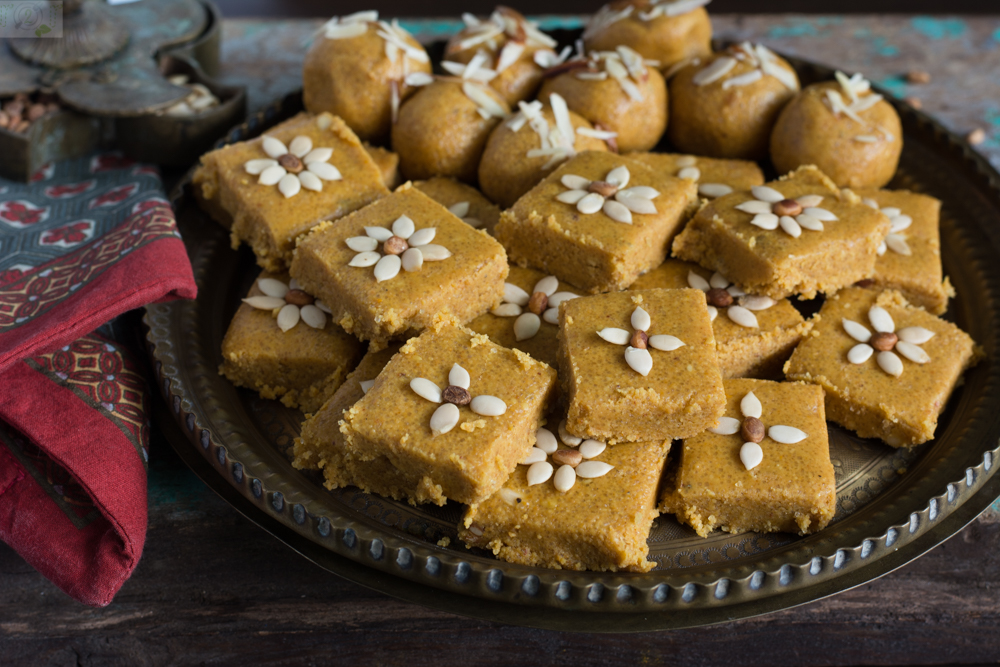
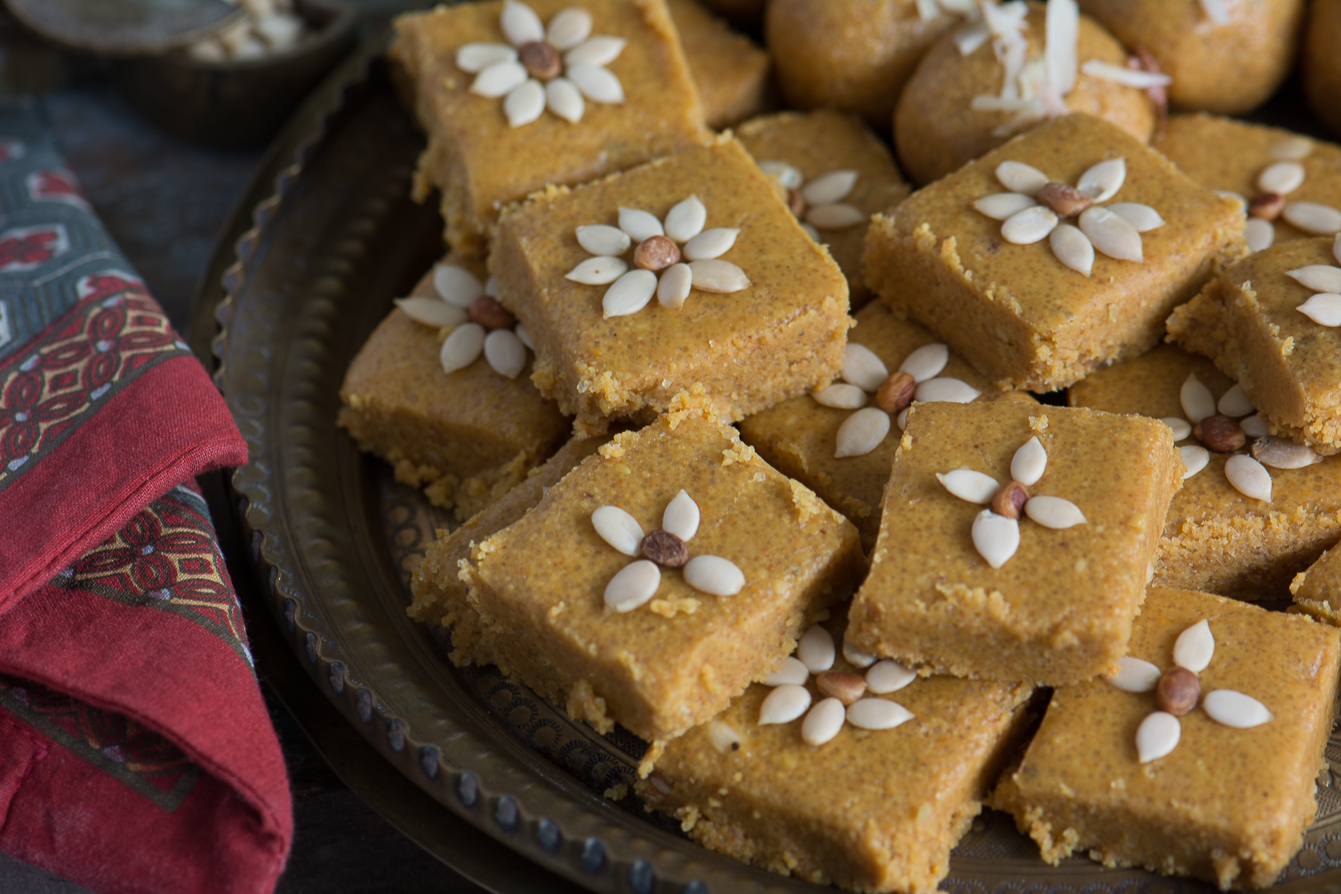

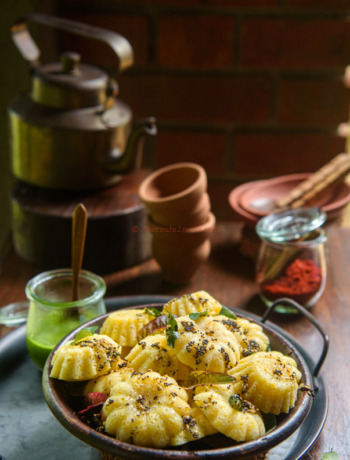
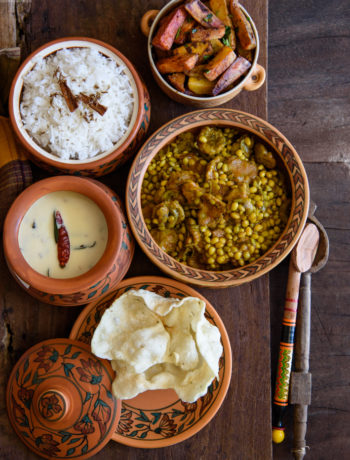
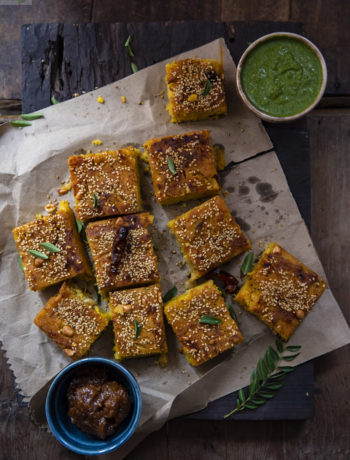
No Comments